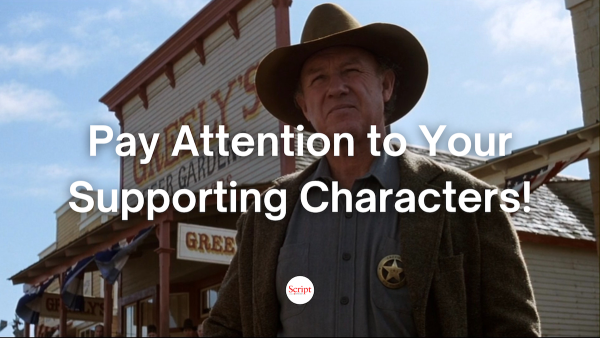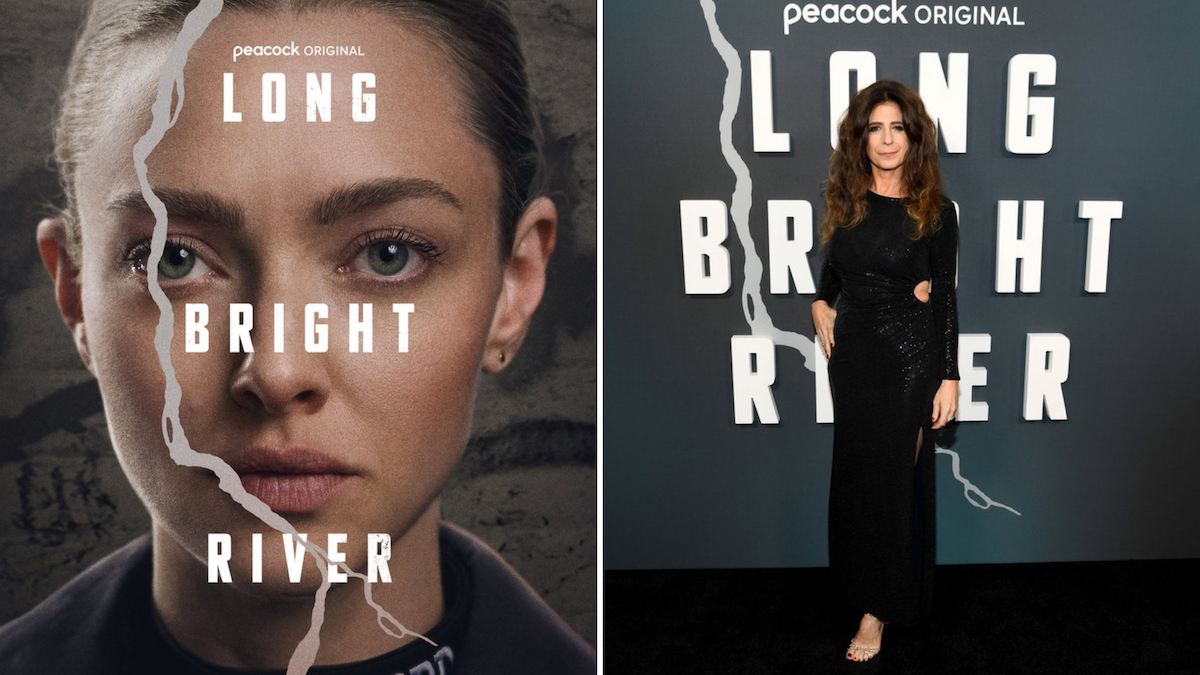Sci-Fi Circuit: Breaking Into the Sci-Fi Spec Market with Screenwriter Shane Joseph Willis
As a sci-fi screenwriter, I’m fascinated with understanding what the current market is looking for in terms of science fiction spec scripts. This question is usually on my mind in…
As a sci-fi screenwriter, I'm fascinated with understanding what the current market is looking for in terms of science fiction spec scripts. This question is usually on my mind in some form or another:
When it comes to breaking into the spec market as a sci-fi screenwriter, what does it take?
To begin to answer this question, I reached out to Shane Joseph Willis, a Australian screenwriter writer and director whose sci-fi action/thriller script Anonymity recently attracted a lot of attention. It all started with his submission of his script to the Tracking Board's coverage service, which promptly earned him a position on their "Recommends" page due to the quality of his writing and his high concept. The listing of his script in turn generated a number of script requests, which Shane was then able to leverage into landing representation with a Hollywood manager -- all the way from Australia.
I suspected the process might have also given him insight into breaking in to the sci-fi spec market, so I interviewed Shane to get his take on what he's learned from his recent success.
Here's what Shane had to say:
Shane, would you first tell us about Anonymity? What inspired you to write it?
Anonymity deals with the idea of personal data and the potential for the great abuse of our information at the hands of those who control it. It takes place "20 minutes into the future" and asks; at what cost do we give away our personal information? It deals with identity, memory, and the idea that our privacy is constantly being eroded; more and more about us is becoming stored online and in databases. Whoever has access to that information has power over us. The story takes that to an extreme.
The inspiration really came from a vision I had of the main character. I wanted to create a chameleon, someone who was constantly changing identities, so much so that he has forgotten who he originally is. He doesn’t fit in with the world; he’s out of step from his surroundings. A classic cyberpunk character. The story seemed like the perfect situation for a character like that to be in. I definitely did a lot of ‘what if-ing’, in generating this concept.
Tell us a little bit about yourself and your writing too, including your relationship with sci-fi. Is it a passion for you? An exploration with this particular script? And how many sci-fi scripts have you written besides this one?
I’m based in Melbourne, Australia, so landing representation in Hollywood was a huge coup for me. In addition to other writing, I've written and directed two shorts, Monarch and Run to the Horizon.Anonymityis my second sci-fi feature script.
I’ve been exposed to sci-fi since before I can remember, it impacted on my psyche from a very young age; put a hook in me. It’s definitely a passion, but it’s more than that, it’s a way through which I look at the world. Writing sci-fi gives you an opportunity to say and do things you normally couldn’t do in a story, in terms of metaphors and analogies. There’s always so much more going on under the surface. If you look at all great science fiction films, they transcend the genre. Alien is a gothic horror story; Blade Runner is a noir detective story. Anonymity tries to achieve that.
What happened when you submitted the script to the Tracking Board coverage service? You've had a great response, right? What was that like for you?
The Tracking Board offers a great coverage service, which I submitted the script to. I got an email back with the coverage attached congratulating me and offering to showcase the script on their "Recommends" page. Naturally I jumped at the chance. I went from sending out dozens and dozens of query letters to managers, agents and producers, to having them contact me to read the script. I can tell you it was a nice reversal. After speaking to several managers, Sidney Sherman at Rosa Entertainment was definitely the best fit for the direction I want to go in my career. He’s a huge sci-fi fan too, and was a fan of my work.
About how long did it take you to complete this project, from inception to submission to the Tracking Board? How many revisions did you go through?
From inception to submission it took about 6-7 months of work. There were lots of revisions during that time, more than I care to remember. Then there was also a one month period from when I got coverage back to when they placed it on their website. I used that time to polish it up based on their notes.
What in particular do you think was so appealing about this project?
From what I was told from the managers and producers who contacted me, the write-up that the Tracking Board posted on their website definitely generated the initial buzz, the story premise was something that cemented the interest. I was told that an elevated genre piece that could be done on a budget is what is driving the market in terms of original sci-fi projects right now.
Has anyone made any guesstimates about the budget for the project?
Regarding the budget, it can be hard to tell at this early stage. It depends on a number of factors like actors and other talent that gets attached to it. It can be compared to a film like Looper, which is a smart sci-fi film made for a price -- the kind Hollywood wants right now. Looper was made for $30 million, and we expect this project will come in at that point or lower, again depending on the factors I mentioned. The budget won't be more than that because the script is quite contained, which means there are no major special effects or CGI sequences, the number of characters is limited, and the setting is quite contemporary, so it doesn't require large scale sets. The tone of the script could almost be compared to Memento in that it has a noirish feel to it and inasmuch as that film was quite contained too.
What have you learned about the industry and what the market is looking for in terms of sci-fi, based on the response you've received?
I think sci-fi will always resonate with the marketplace. Again, the elevated concept is a strong selling point. Make sure that the script is a strong as it can possibly be before sending it out. Sometimes as writers we need to put on a producers hat, and ask ourselves the questions a producer would ask… like, how am I going to sell this script? Essentially everyone in the business is looking for the same thing; a marketable project. It’s our job as screenwriters to bring it to them.
What have you learned that will inform your next project, sci-fi or otherwise?
The next one is a sci-fi project! That script was previously a finalist in the PAGE Awards and I am currently rewriting it. I’ve learned that there is no limit to elevating the story. Knowing what makes a script marketable is important to any writer trying to break in -- understanding what sells and being willing to embrace the business side of screenwriting while still maintaining the integrity of your vision. Sometimes it’s a fine balance.
What recommendations do you have for other writers looking to get traction in the market with sci-fi projects?
Be aware of what’s trending in the marketplace but don’t be bound by those trends. Everyone’s looking for the next big thing, so don’t try and emulate what someone else has done previously. Let your own voice be heard.
What were your early sci-fi influences? What are your favorites now? What have you learned from them?
Star Wars was my first love. I think we can all relate to that. I remember bugging my dad to rent me a copy of Terminator 2 on VHS when I was a kid… I was too young to see it in the theater. He finally caved on that one. Mad Max and The Road Warrior were huge early influences as well as anything cyberpunk like William Gibson and Phillip Dick, but also a lot of lesser known sci-fi movies like Stalker or Alphaville or World On A Wire. I draw influences from lots of different sources... too many to list! I’ve learned many things, but one thing in particular that I’ve taken away is that an audience or reader needs someone they can relate to, like an everyman character to take us through the journey, particularly when the world we’re exploring is mythical or fantastical. I think that’s the key to great sci fi.
What are your next steps with this project?
The script will be going on the market soon. Fingers crossed it will resonate with buyers.
Thank you, Shane! We wish you the best of luck and much success with Anonymity.
If you'd like to follow Shane's journey with Anonymity and his progress, you can connect with him on Twitter.
Related Articles:
- What Makes It Sci-Fi? by Jenna Avery
- The Magic of World Building by Jenna Avery
- High Concept—Yes—It Actually Means Something! by Jeff Lyons
Tools to Help:
- The Writer’s Digest Guide to Science Fiction & Fantasy by Orson Scott Card
- Write Sci-Fi Film & Television Scripts That Sell (on-demand webinar) with Steve Duncan
- Breaking in Outside Hollywood webinar with Jeanne Veillete Bowerman
Jenna Avery is a screenwriter, columnist for Final Draft and Script Mag, instructor for Script University and The Writer’s Store, and story consultant. As a storyteller, she specializes in sci-fi action and space fantasy. Jenna is also a writing coach and the founder of Called to Write, an online community and coaching program designed to help writers make the work of writing actually happen, where she has helped hundreds of writers overcome procrastination, perfectionism, and resistance so they can get their writing onto the page and out into the world where it belongs. Jenna lives in the San Francisco Bay Area with her husband, two sons, and three cats, and writes about writing, creativity, and calling at CalledtoWrite.com. Download Jenna’s free guidebooks for writers when you join her mailing list. Find Jenna online: JennaAvery.com | CalledtoWrite.com Twitter: @JennaAvery







